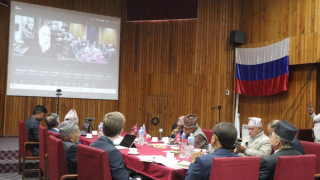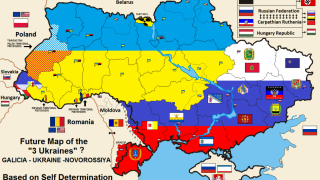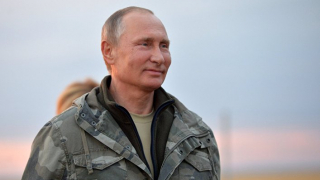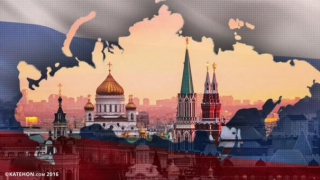24.11.2024
Kathmandu (Keshav Bhattarai): On November 23, 2024, with the support of the Russian House in Nepal, a conference by philosopher and political...
18.11.2024
Today, the world stands at a crossroads—a dangerous yet transformative moment—marked by the collapse of traditional power structures and the...
18.10.2017
Russia needs Novorossiya and Malorossiya - at least the part of Malorossiya that is east of the Dnepr river. These parts are not "ukrainian", they...
09.04.2017
Vladimir Putin yesterday said that “95% of the world’s terrorist attacks are orchestrated by the CIA,” and the St. Petersburg metro bombing must be...
17.04.2017
US National Security Adviser Herbert McMaster unexpectedly praised the outcome of the talks between US President Donald Trump and Chinese President...
17.06.2022
The speaker of the Duma, Vyacheslav Volodin, may have created the defining acronym for the emerging multipolar world: “the new G8”.
As Volodin noted...
03.02.2021
“They make their plans and weave their strategies. But also God does it. God is the Lord of strategies.”
14.11.2016
Iran is going to buy Russian weapons of various kinds, among which there are T-90 battle tanks, artillery systems, aircraft and helicopters. In total...
21.10.2024
In essence, we are changing our ideology for the third time in 35 years. Until the early 1990s, society was under the dictatorship of Marxism-...
25.02.2019
Anchor: Omar Khalid Butt
Guest: Leonid Savin (Director Foundation for Monitoring and Forecasting, chief editor of Geopolitica.ru)
Producers: Aamir...
01.10.2021
We meet the scholar Alessandro Fanetti, author of the book “Russia: in search of the lost power” (Edizioni Eiffel, 2021) [1], to face the reality of...
02.08.2016
The European Union is concerned over the prospects of a resumption of the “Turkish Stream” pipeline construction. Reuters has reported this, citing a...














